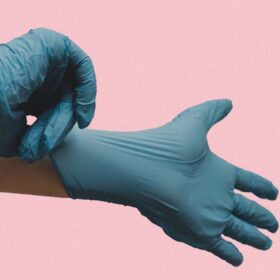
Clitoris pain: itching, sensitive, sharp or shooting pain help
In this article
What's the lowdown?
Clitoral pain can be uncomfortable and affect your quality of life
It can be caused by a range of reasons like infections, trauma or nerve damage
The treatment of clitoral pain is normally determined by the underlying cause
What is the clitoris?
Good things come in small packages. Truer words have never been said about the clitoris (or conversationally the clit).
Sitting at the top of our vulva (external genitalia) lies a tiny nub of skin visible to us, but there is so much more lying underneath the surface. The internal glans of the clitoris is made up of over 8,000 nerve endings and erectile tissue, spanning 9-11cm in size. It is the most sensitive part of the female erogenous zones, reacting to any stimulation: finger, tongue, toy or your partner’s genitalia. Touching your external glans can invoke calming tingly sensations, slowly building to the point of sexual release (aka orgasm). The clitoris can fill with blood and swell when aroused, just like a penis1.
It simply has one job, to allow us to feel and experience sexual pleasure. Small but mighty, don’t you think?
Different types of clitoris pain (stabbing, throbbing etc)
I cannot think of anything worse than clitoris pain. As it is made up of over thousands of nerves, it is highly sensitive to pain. It can vary from person to person, ranging from mild to severe.
You can feel clitoral pain (medically known as clitorodynia) in many forms:
- Stabbing
- Throbbing
- Itching
- Stinging
- Burning
You might also feel the pain throughout your external genitalia rather than just concentrated around the clitoris. The pain can come on suddenly for no reason or be provoked, is very intense and may last for several hours.
What can cause clitoris pain?
There are many causes of clit pain2:
- Sexual trauma: Rough sex or sexual abuse can lead to clitoral injury and pain
- Trauma to the area: Damage can occur to the area during childbirth or surgery
- Infections: Urinary tract infections (UTIs) or vaginal infections (eg. thrush) can result in a burning or clitoris itching
- Sexually-transmitted infections (STIs): Multiple types of STIs can result in pain
- Irritated skin: Chemicals or fragrances used on the area can irritate the external skin of the clitoris
- Skin conditions: such as lichen sclerosus can cause pain
- Compressed nerves: If the nerves in the clit are pressed, you might feel shooting pain
- Keratin pearls: The clit normally produces secretions that allow it to move freely. A build-up of secretions leads to the formation of keratin pearls, which prevents clitoral movement leading to repeated rubbing and friction to the clit.
When to see a doctor
Any pain that causes discomfort and affects your quality of life needs to be looked at.
Worrying symptoms to look out for:
- Fevers or shivers
- Vaginal discharge or bleeding (not period related)
- Worsening clit pain
- Severe pain spreading to the vagina and pelvis
Your doctor will spend some time speaking to you, getting a better understanding of when and how the pain started. They should then examine the vulval area (external genitalia), with a chaperone present, to look for any visible trauma which might explain the pain.
Treatment for painful clitoris
Treatment of clitoral pain depends on the cause of the pain. STIs and UTIs will be treated with antibiotics3,4 while thrush will be treated with antifungals. It is important to stay away from sexual intercourse with an UTI or STI as it can worsen the symptoms. Removing products causing skin irritation and using simply water to wash can alleviate the pain. Practising gentle sex and applying a cold compress can relieve a sensitive clitoris. Some anti-depressants or anti-convulsants can also be prescribed to tackle clit nerve pain5.
How do I get help?
You do not deserve to live in pain. Start by booking an appointment with a doctor, but treatment could be from a multidisciplinary team of professionals including a pelvic physio and clinical sexologist. If you do not feel comfortable, you can ask for a female clinician and a longer appointment so you have ample time to explain your symptoms.
The Lowdown is here for you in all aspects of your life. Our professionals have a wealth of women’s health knowledge and experience, providing advice and support in the most sensitive of situations. Book your appointment with us today!
Our medical review process
This article has been medically reviewed for factual and up to date information by a Lowdown doctor.

